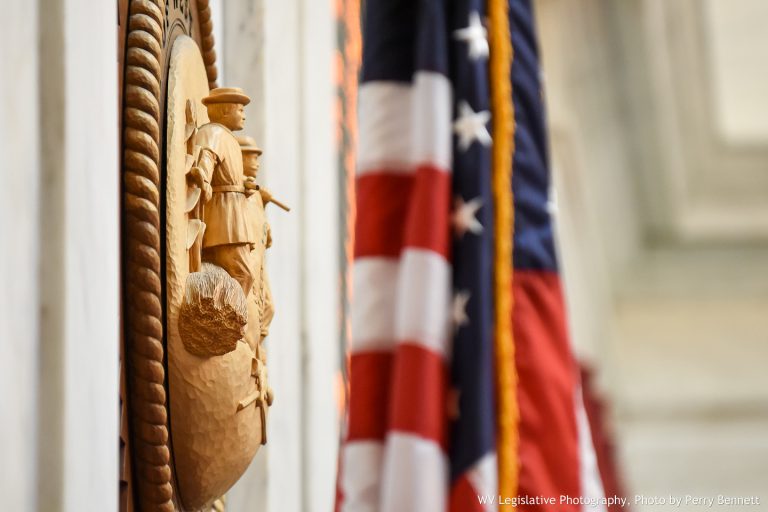As of 4 p.m., Wednesday, February 14, 2007, the 36th day of the 2007 Regular Session, 1,074 bills have been introduced in the House of Delegates. Of those, 36 have passed the House and will now go to the Senate for its consideration. They include:
House Bill 2126 would exempt land-based finfish aquaculture facilities from certain sludge management requirements such as waste disposal.
House Bill 2498 would enhance the penalty for indecent exposure to a child under the age of 14. Any person who intentionally exposes himself or herself to someone under 14 years old for the purpose of sexual gratification could be convicted of a misdemeanor and would be fined up to $500 or sent to jail for up to a year. A second offense would make the person, if convicted, guilty of a misdemeanor and would be fined up to $1,000 and sent to jail for 30 days to 12 months. For a third and subsequent offense, the person would be guilty of a felony and would be fined up to $3,000 and imprisoned for one to five years.
House Bill 2578 would continue current mental health laws for group insurance plans that were set to end this March.
House Bill 2585 relates to the renewal of teaching certificates and permanent certification. Until a person qualifies for a certificate, any professional or first class certificate based on a bachelor’s degree could be renewed if it’s within five years from the date the certificate became valid.
House Bill 2781 relates to modifying the permitted length of school buses so that they may not exceed 13 feet, six inches.
House Bill 2787 would allow cooperation with the Secretary of State’s office in providing that victims of domestic abuse, sexual assault, or stalking are given a substitute mailing address. This bill would provide extra protection for the victim because the victim’s address would be kept private and not available to possible offenders.
House Bill 2789 would make available the expertise of former magistrate court clerks when current clerks are unavailable or their positions are otherwise vacant. This bill would also set stipulations for the compensation of their services.
House Bill 2791 would eliminate the jail penalty for violating a peace bond, which seeks to ensure good behavior. However, if the defendant violates the conditions of the bond, he or she may be fined $250.
House Bill 2204 would allow a retiring police officer to keep his or her revolver. Circumstances for retirement include termination given by the Chief of Police, 25 years of honorable service, or if the officer becomes disabled or mentally incompetent.
House Bill 2380 would add a new section to current law on the consumer sales and service tax, which would exempt the purchase of certain drugs, durable medical goods such as wheelchairs, mobility enhancing equipment and prosthetic devices from the consumers sales and service tax. These purchases are made through a health care provider, which is any person licensed to prescribe drugs intended for use in the diagnosis, cure, mitigation, treatment, or prevention of injury or disease in humans and any hospital, medical clinic or nursing home. These purchases are prescribed and used in the diagnosis, cure, mitigation, treatment, or prevention of injury or disease.
House Bill 2801, known as the “West Virginia Fire and EMS Survivor Benefit Act,” would provide a $50,000 death benefit to the families of both paid and volunteer firefighters and EMS personnel who are killed in the line of duty. Individuals who are both fire fighters and EMS personnel are eligible for only one death benefit payment. This benefit incorporates travel, which would include riding upon any apparatus owned or used by the fire or EMS department, or any other vehicle going to or directly returning from any place where the personnel had been participating in a work related action.
House Bill 2917 would eliminate the requirement in the Consumers Sales and Service Tax and the Personal Income Tax that requires the accelerated payment of those taxes in June. This bill explains that on and after June 1, 2007 the payment requirement for taxes due on or before June 20th would be no longer effective.
House Bill 2989 relates to certain tax shelters used to avoid paying state income taxes. This bill clarifies when penalties would be imposed, determines when the tax shelter registration numbers could be filed with the tax commissioner and determines when tax shelter investor lists could be filed with the tax commissioner.
House Bill 2990 would make technical corrections to assure the proper collection of offset fees. The Tax Commissioner would be responsible for the collection of taxes, tax additions, penalties and interest.
House Bill 2991 would authorize the Tax Commissioner to conduct criminal record checks for prospective employees of the Tax Division. This would be conducted to determine if an applicant for employment in the state tax division is suitable. Criminal records checks would be administered through the Criminal Identification Bureau of the West Virginia State Police and a national criminal history check through the Federal Bureau of Investigation. The results of any criminal records or criminal history would be sent to the commissioner, who only could disclose that information if it is directly related to employment.
House Bill 2992 would decrease the health care provider tax imposed on gross receipts, which are the amounts received from patients, third-party payers or others, for nursing facility services. The nursing home provider tax would be decreased to five and one-half percent of the total gross receipts received by November 1, 2007.
Sunset Legislation
House Bill 2349 relates to the continuation of the Board of Registration for Sanitarians. This would be in effect until July 1, 2016.
House Bill 2574 would extend the term of the Board of Social Work Examiners. This would go into effect until July 1, 2017.
House Bill 2586 relates to the continuation of the Board of Veterinary Medicine. This would go into effect until July 1, 2017.
House Bill 2587 relates to the continuation of the Board of Optometry. This would go into effect until July 1, 2018.
House Bill 2800 would regulate the practice of Radiologist Assistants and govern the practice of medical imaging and radiation therapy. The West Virginia Medical Imaging and Radiation Therapy Technology Board of Examiners would be in effect until July 1, 2010.










